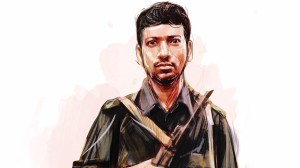Magician Kasparov finds himself in a bind to keep his reputation intact
LONDON, OCT 21: Chess superstar Gary Kasparov frowned, shook his head and muttered under his breath.The 37-year-old Russian, famed for his...

LONDON, OCT 21: Chess superstar Gary Kasparov frowned, shook his head and muttered under his breath.
The 37-year-old Russian, famed for his intimidating stare, his arrogance over the chess board and the psychological pressure he exerts on opponents, looked astonished but at his own blunders, not his challenger’s.
Kasparov has ruled the chess world for 15 years, surviving five previous challenges. But the man who once declared chess a violent sport where players “are plotting to crush one another” and destroy their opponent’s ego is trailing nearly midway through the 2000 World Chess Championship.
And this scrap is different from his past championship matches, which were marked by Cold War posturing, ideological differences or personal animosity: This time, the fellow Russian he must defeat if he is to retain his title and win two-thirds of a $ 2 million purse is his friend and protege, Vladimir Kramnik.
Kasparov, an athletic-looking man with greying hair and sharp taste in clothes, has played seven games against the tall, bespectacled 25-year-old Kramnik in a London television studio. Kramnik has taken the upper hand against his former mentor, winning one game and earning six draws.
The latest draw came on Thursday after a mere 48 minutes in a game where Kasparov playing with the white pieces, which is akin to a tennis player serving should have held the initiative.
Kasparov has yet to win a game. But chess experts caution that with nine games to go in the 16-game tournament play resumes today it is too early to write Kasparov’s chess obituary.
The man who dominates this mental sport and who many consider the best player ever is hardly likely to give up his most prized title without a vicious fight regardless of who sits across the board.
Kramnik was part of Kasparov’s training team when Kasparov crushed another challenger in 1995. He had been tapped by Kasparov early on as a possible successor, and the warmth between the two players is apparent.
“Kasparov feeds on tension. Psychologically, he relishes it,” said Dominic Lawson, editor of Britain’s Sunday Telegraph newspaper and a former chess writer.
“There isn’t a lot of tension around this match. In my opinion, it is quite relaxed,” Lawson said. “The lack of any kind of political tension and personal aggression probably suits Kramnik, just as it doesn’t suit Kasparov.”
The players spent months training. They’ve perfected opening techniques, worked on attacks and defences and honed their physical fitness to ensure they survive the stress of the four-week tournament, in which games can sometimes last six or seven hours. While Kasparov is vastly more experienced at tournament play, Kramnik is a good match for the chess superstar. They have met 23 times in games played under classical rules; each man has won three times and 17 games have ended in draws.
Kasparov conceded on Thursday that he had faced some problems from Kramnik’s play but, he added, “I am working (on it) now.”
Chess experts note that Kramnik is vulnerable. While he has been able to stymie Kasparov’s well-prepared opening attacks, he also has had to settle for draws after squandering winning positions.
At times, both men look worn out as they face each other across the board. Kramnik extends his long legs and leans his elbows on the table, while Kasparov holds his head in his hands and sinks deeper into his tan leather chair, tapping his polished black shoes against the floor.
Neither likes to watch while the other plays, preferring to retire to their private rooms to pace, calculate their moves or munch chocolate bars for energy.
While the roughly 200 spectators watching from the shadows beyond the stage are audibly disappointed when the battles end in a draw, Fred Waitzkin, who followed Kasparov’s 1990 world championship match against Anatoly Karpov for his book “Mortal Games,” likened successive draws to “violent skirmishes within one huge battle.”
“Everyone knows that the end of this stand off must come,” he wrote.



- 01
- 02
- 03
- 04
- 05




























